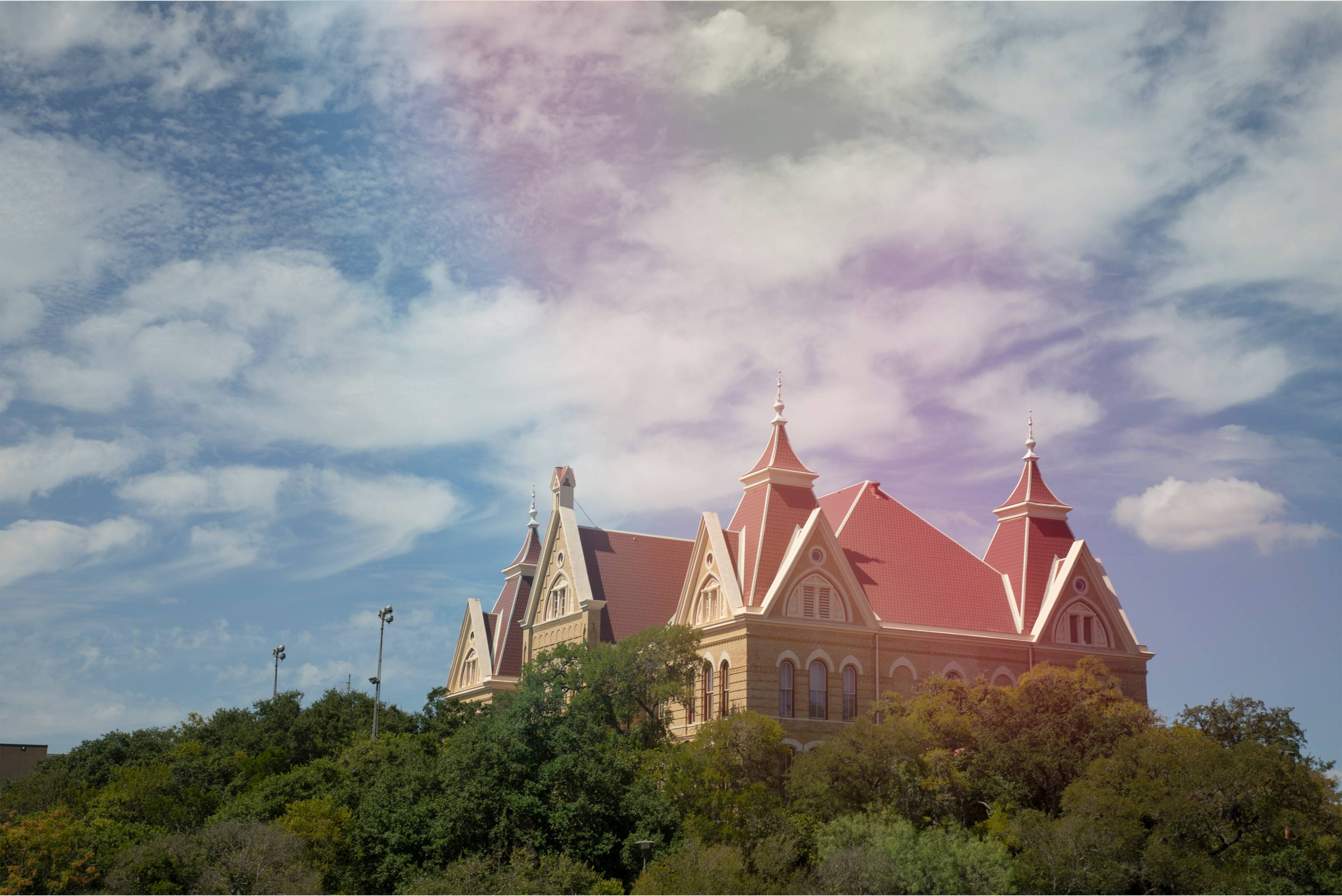To see what courses are being offered in upcoming semesters, click the "Filter/Search" box to limit results by term. Not all SLE courses are offered on a regular basis.
You may also search the catalog by keyword, course number, core curriculum component, and other selected criteria. For up-to-date scheduling and course enrollment information, please visit CatsWeb.
Filter Panel
-
Spring 2024
-
Summer 2024
-
Fall 2024
-
Spring 2025
-
Summer 2025
-
Fall 2025
-
Spring 2026
-
AG 3302. Herbaceous Plant Materials.
This course will include the identification, selection, use, and management of annuals, perennials, herbs, and ornamental grasses in the landscape. Each student will learn irrigation, fertilization, pruning, and other cultural needs of such plants. The laboratory will complement lecture.
-
AG 3305. Woody Plant Materials for Outdoor Landscapes.
Study of woody plant material including fruit and ornamental trees, shrubs, and ground covers and their identification, nomenclature, and use in the planting and development of home landscapes.
-
AG 4304. Landscape Management.
To acquaint students with the practices and techniques used in professional landscape construction and management, and with the scientific and technical basis for such practices.
-
AG 4305. Landscape Design.
Landscaping combines elements of art and science to create functional, aesthetically pleasing outdoor space. This class helps students develop knowledge of design elements and principles. Students learn site and client analysis techniques for critiquing landscapes. Students learn to communicate ideas through the planning and drawing of landscape plans.
-
AG 5310. Research Methods in Integrated Agricultural Sciences.
This course covers research techniques, literature analysis, the development and implementation of experimental designs, conceptual models and survey instruments.
-
BIO 4317. Interpretive Biology Programming and Design.
In this course, students will explore the methods and principles used by the National Park Service, museums, environmental centers, and state park systems to interest a variety of audiences as well as interpret biology and natural environments effectively. Students will practice skills in both personal and non-personal interpretation by creating science outreach programs, interpretive literature, brochures, path waysides, and other interpretive media. Service-learning is an integral and mandatory part of this course. (WI) Prerequisite: [BIO 2410 or BIO 2411] and BIO 2450 with grades of "D" or better.
-
BIO 4327. Issues in Irish Biodiversity and Conservation.
In this course, students will learn about Irish flora and fauna, ecosystems, conservation strategies in areas of high ecological concern, and public involvement. Emphasis will be placed on case studies and service-learning opportunities. Prerequisite: BIO 1131 and BIO 1331 both with grades of "D" or better and instructor approval. Corequisite: BIO 4328 with a grade of "D" or better.
-
BIO 4402. Earth Science I.
The description and interpretation of earth phenomena considered from the standpoint of meteorology and astroscience. Includes field observations, methods of measurement and interpretation of data related to the physical environment and space technology. May not be counted toward a major or minor in biology. Required for those seeking grade 4-8 Science and Mathematics/Science certification.
-
BIO 4403. Earth Science II.
The description and interpretation of earth phenomena considered from the standpoint of geology and oceanography. Includes field observations, methods of sampling and interpretation of data related to the physical environment. May not be counted toward a major or a minor in biology. Required for those seeking grade 4-8 Science and Mathematics/Science certification.
-
BIO 5317. Interpretive Biology Programming and Design.
In this course, students will explore the methods and principles used by the National Park Service, museums, environmental centers, and state park systems to interest a variety of audiences as well as interpret biology and natural environments effectively. Students will practice skills in both personal and non-personal interpretation by creating science outreach programs, interpretive literature, brochures, path waysides, and other interpretive media.
-
BIO 5327. Issues in Irish Biodiversity and Conservation.
In this course, students will learn about Irish flora and fauna, ecosystems, conservation strategies in areas of high ecological concern, and public involvement. Emphasis will be placed on case studies and service-learning opportunities. Prerequisite: Instructor approval.
-
BIO 5402. Earth Science I.
A study of astronomy and meteorology through observation, description, and interpretation of earth phenomena. Includes field observations, methods of measurement and interpretation of data related to the physical environment and space technology. Requires independent scientific and science education research and presentation of findings in a professional context.
-
BIO 5403. Earth Science II.
The description and interpretation of earth phenomena considered from the standpoint of geology and oceanography. Includes field observations, methods of sampling and interpretation of data related to the physical environment. Requires independent scientific and science education research and presentation of findings in a professional context.
-
GS 3310. Earth Science Concepts.
This laboratory course acquaints students with the fundamentals of chemistry and earth space science. It is non-creditable for science majors but is a required course for select education majors. Prerequisites: PHYS 1310 or PHYS 1315 or PHYS 1320 or PHYS 1325 or PHYS 1360 or PHYS 1365 or PHYS 1370 or PHYS 1410 or PHYS 1420 any with grade of “C” or better.

